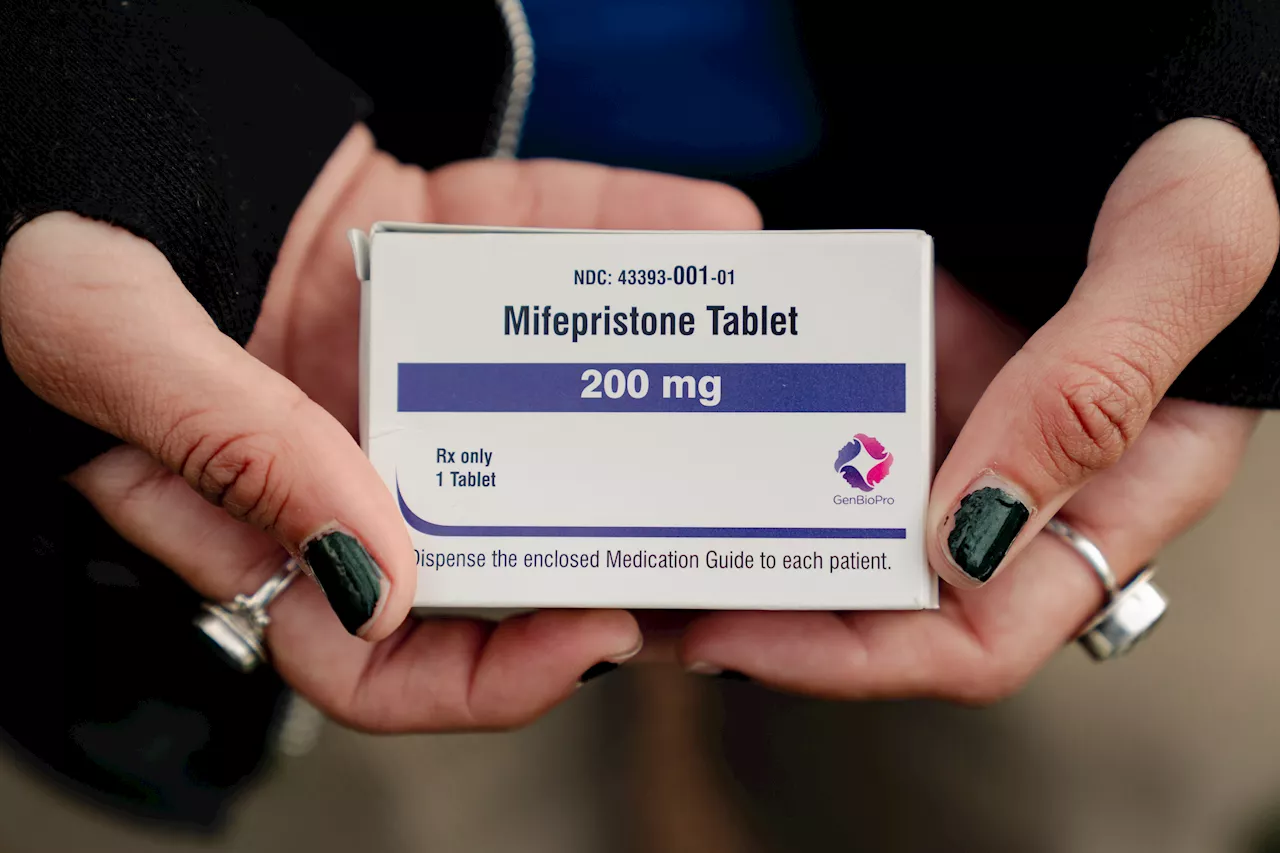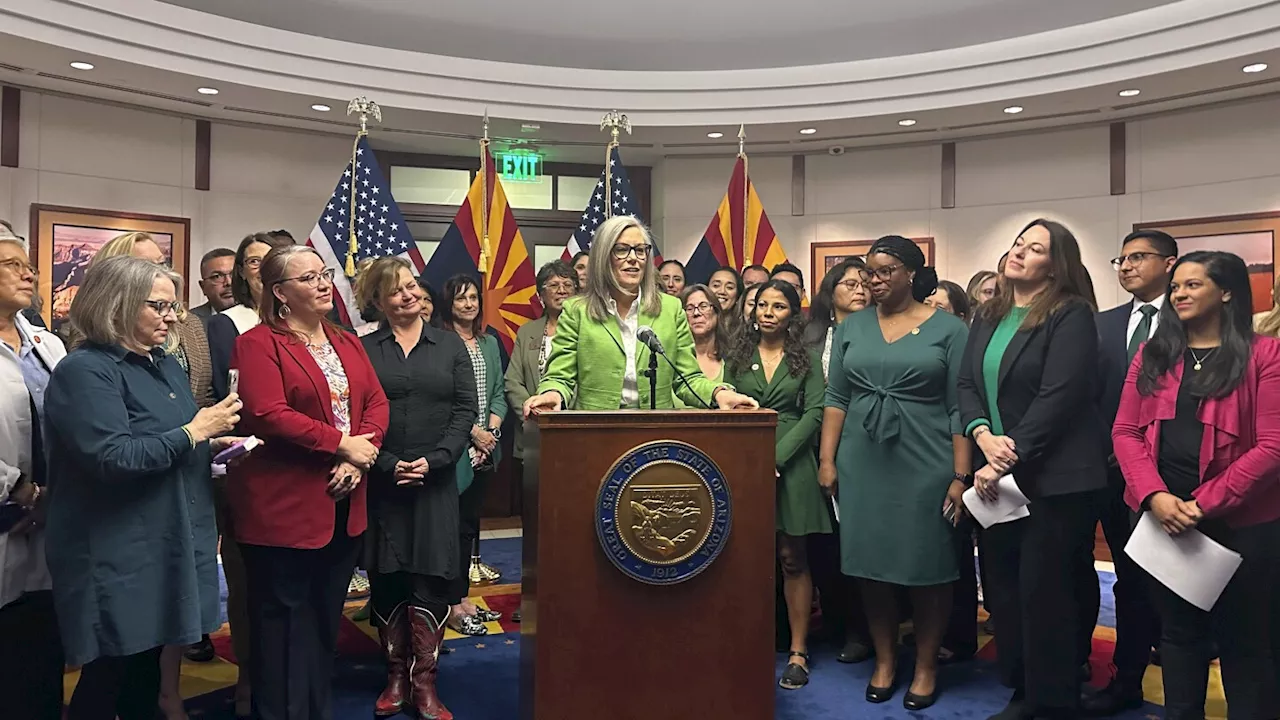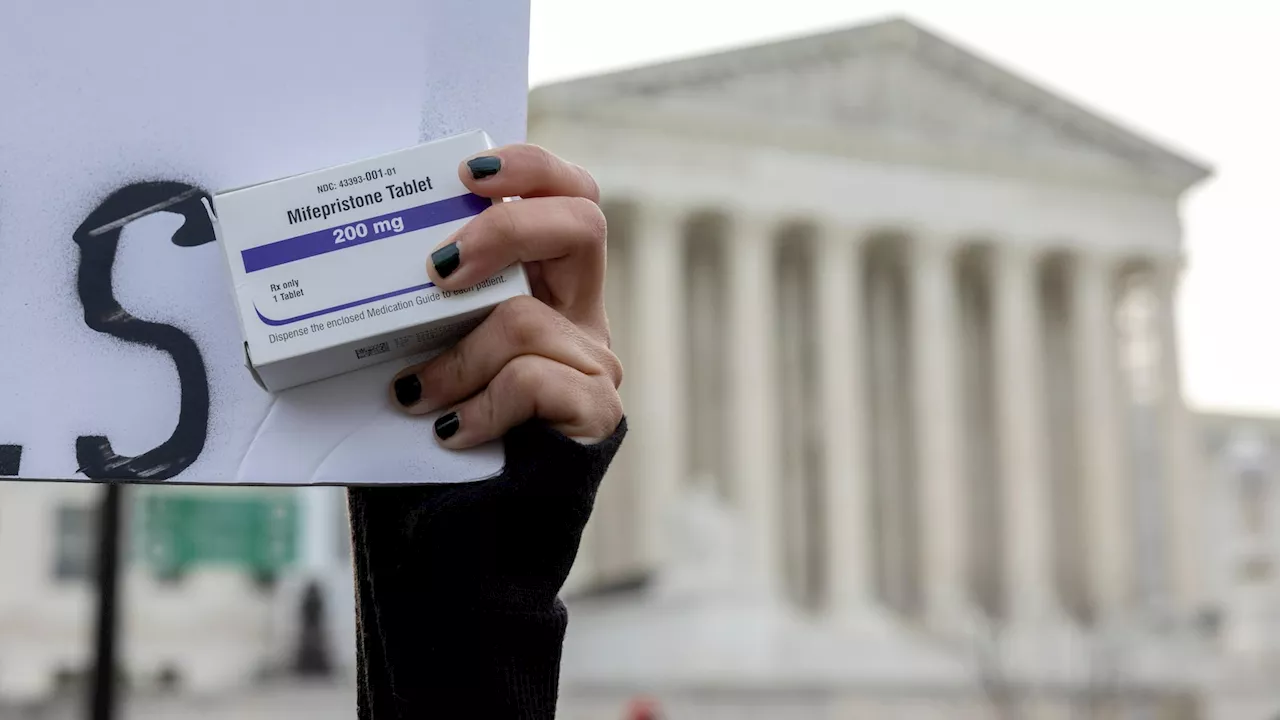Despite bans and restrictions in many states, abortion rates have slightly increased nationwide. The shift in access has seen a surge in medication abortion, facilitated by telehealth, particularly among those residing in states with abortion bans.
FILE - An abortion- rights activist holds a box of mifepristone pills as demonstrators from both anti-abortion and abortion-rights groups rally outside the Supreme Court in Washington, Tuesday, March 26, 2024. Abortion has become slightly more common despite bans or deep restrictions in most Republican-controlled states, and the legal and political fights over its future are not over yet.
“Abortion bans don’t actually prevent abortions from happening,” said Ushma Upadhyay, a public health social scientist at the University of California San Francisco.For women in some states, there are major obstacles to getting abortions — and advocates say that low-income, minority and immigrant women are least likely to be able to get them when they want.
But now, it's become more common for pill prescriptions to be made by telehealth. By the summer of 2024, about 1 in 10 abortions was via pills prescribed via telehealth to patients in states where abortion is banned.for prescribing pills to a Texas woman via telemedicine. There's also an effort by Idaho, Kansas and Missouri toBut a network of efforts to get women seeking abortions to places where they're legal has strengthened and travel for abortion is now common.
But Myers says some hospitals that always provided some abortions have begun advertising it. So they’re now in the count of clinics – even though they might provide few of them.President Joe Biden's administration says hospitals must offer abortions when they're needed to prevent organ loss, hemorrhage or deadly infections, even in states with bans.
Abortion Roe V. Wade Dobbs V. Jackson Women's Health Organization Medication Abortion Telehealth
United States Latest News, United States Headlines
Similar News:You can also read news stories similar to this one that we have collected from other news sources.
 Legal Battle Erupts Over Abortion Pills as Access RestrictedThe focus of the abortion debate in the U.S. is shifting towards restricting access to abortion pills, the most common method of pregnancy termination. A lawsuit against a New York doctor for prescribing abortion pills via telemedicine to a patient in Texas highlights this trend. This case could set a precedent for legal challenges to New York's protective law for providers who prescribe these medications to patients in states with abortion bans. Concerns also arise about the potential for the incoming administration to restrict access to abortion pills.
Legal Battle Erupts Over Abortion Pills as Access RestrictedThe focus of the abortion debate in the U.S. is shifting towards restricting access to abortion pills, the most common method of pregnancy termination. A lawsuit against a New York doctor for prescribing abortion pills via telemedicine to a patient in Texas highlights this trend. This case could set a precedent for legal challenges to New York's protective law for providers who prescribe these medications to patients in states with abortion bans. Concerns also arise about the potential for the incoming administration to restrict access to abortion pills.
Read more »
 Arizona lawsuit seeks to undo 15-week abortion ban that conflicts with expanded accessThe American Civil Liberties Union, along with two other reproductive rights group, filed the lawsuit in Maricopa County in an effort to undo an abortion ban that was passed years before Arizona voters approved an abortion rights ballot measure.
Arizona lawsuit seeks to undo 15-week abortion ban that conflicts with expanded accessThe American Civil Liberties Union, along with two other reproductive rights group, filed the lawsuit in Maricopa County in an effort to undo an abortion ban that was passed years before Arizona voters approved an abortion rights ballot measure.
Read more »
 Lawsuit seeks to undo 15-week abortion ban that conflicts with expanded access in ArizonaThe Associated Press is an independent, not-for-profit news cooperative headquartered in New York City.
Lawsuit seeks to undo 15-week abortion ban that conflicts with expanded access in ArizonaThe Associated Press is an independent, not-for-profit news cooperative headquartered in New York City.
Read more »
 Lawsuit seeks to undo 15-week abortion ban that conflicts with expanded access in ArizonaReproductive rights advocates are trying to dismantle a 15-week abortion ban in Arizona that conflicts with newly expanded access establishing a fundamental right to abortion in the state. Voters approved a ballot measure in November that amended the constitution to allow abortions up to fetal viability.
Lawsuit seeks to undo 15-week abortion ban that conflicts with expanded access in ArizonaReproductive rights advocates are trying to dismantle a 15-week abortion ban in Arizona that conflicts with newly expanded access establishing a fundamental right to abortion in the state. Voters approved a ballot measure in November that amended the constitution to allow abortions up to fetal viability.
Read more »
 Ahead of second Trump term, California vows 'ironclad' abortion accessCalifornia has the nation's strongest abortion protections, but as Trump prepares to take the White House again, Democratic lawmakers say not enough has been done to secure reproductive access.
Ahead of second Trump term, California vows 'ironclad' abortion accessCalifornia has the nation's strongest abortion protections, but as Trump prepares to take the White House again, Democratic lawmakers say not enough has been done to secure reproductive access.
Read more »
 What to know about abortion access in MissouriPlanned Parenthood wanted to resume offering abortions in several Missouri clinics on Friday, immediately after the state's new constitutional amendment rolling back a near total ban took effect.
What to know about abortion access in MissouriPlanned Parenthood wanted to resume offering abortions in several Missouri clinics on Friday, immediately after the state's new constitutional amendment rolling back a near total ban took effect.
Read more »
